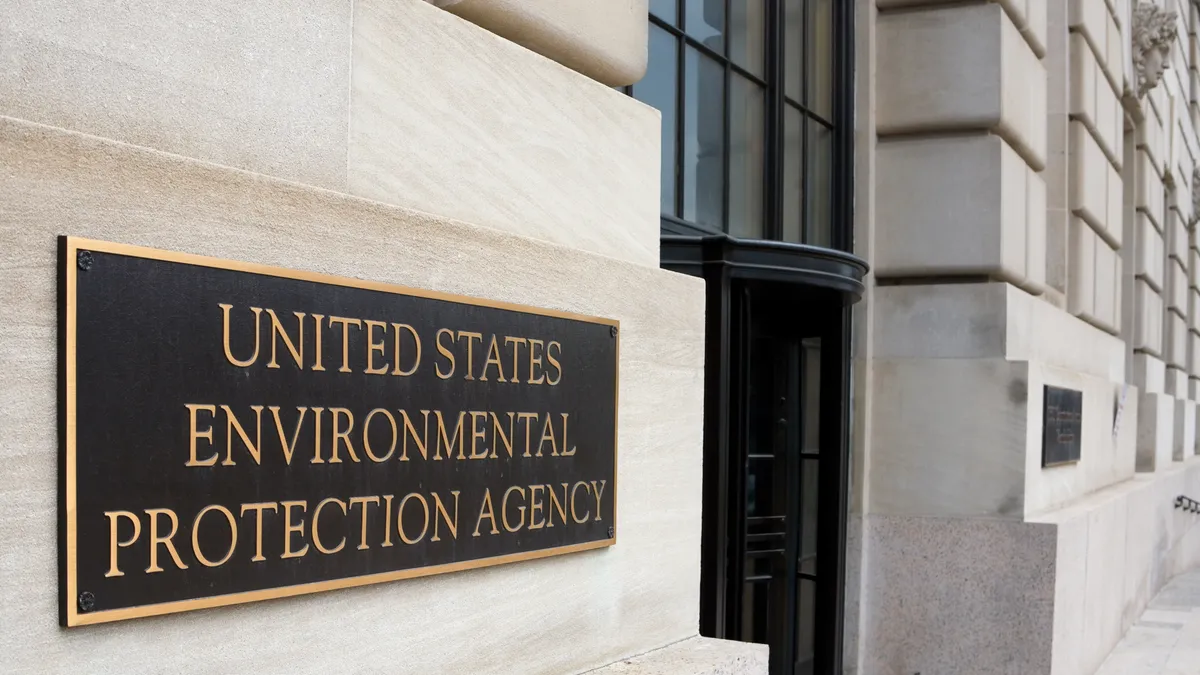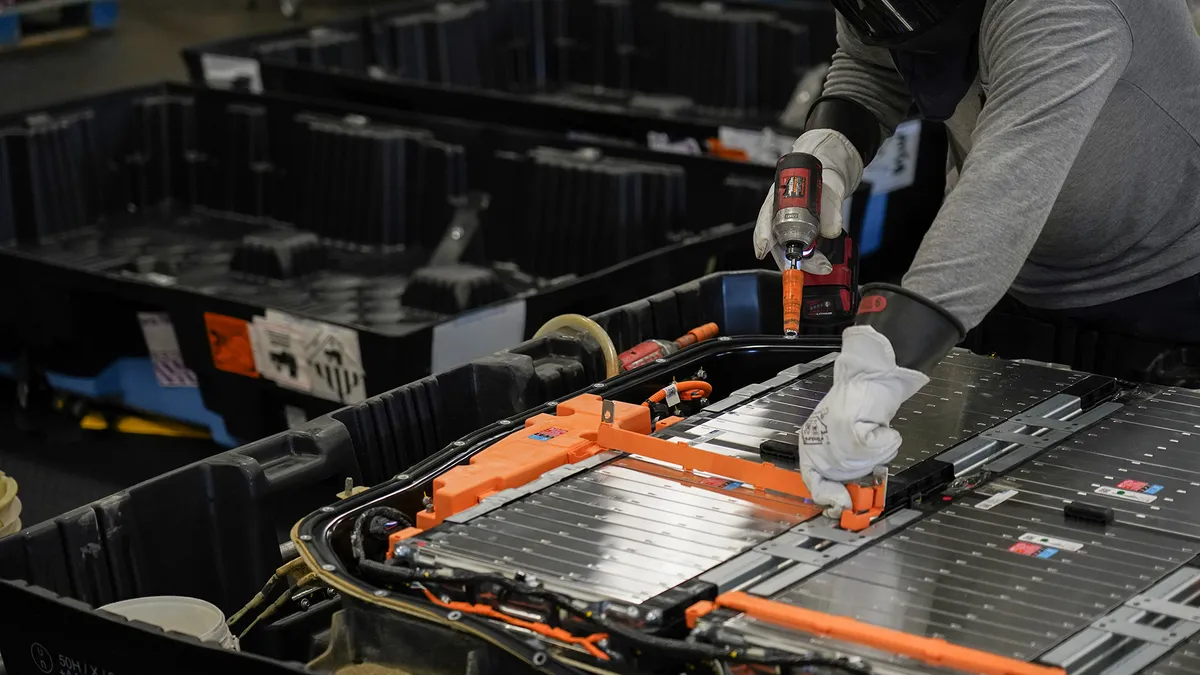The U.S. EPA recently announced $33.3 million in Recycling Education and Outreach grants meant to help increase recycling collection rates and decrease contamination through local recycling and composting programs that engage the public.
The funding for the 25 projects was announced last week as part of America Recycles Day. Of those projects, 19 of the 25 will serve disadvantaged communities, according to the EPA.
Projects include installing AI-assisted cameras that measure contamination and establishing community-led recycling ambassador programs that recruit people to promote recycling in their own communities and in their own languages. Other projects will create toolkits, offer trainings or provide technical support for solid waste operators and organizations launching composting initiatives.
The REO announcement came the same day as a separate $60 million for recycling and waste infrastructure projects on tribal lands or undertaken by intertribal consortia. The agency also recently announced $105 million in similar infrastructure grants.
The grants are funded from the Infrastructure Investment and Jobs Act President Joe Biden signed in 2021.
Here are a few highlights from Recycling Education and Outreach recipients:
New York City Department of Sanitation
Funding amount: $2 million
The grant will help DSNY conduct outreach and education efforts as it works to roll out its citywide curbside composting program, which Press Secretary said via email is the “the nation’s largest and easiest.” The program will serve all New York City residents by next fall, he said.
New York has previously touted its pilot program in Queens as a successful way to help reduce disposal volumes and reduce rat activity in the city. In January, Mayor Eric Adams announced that New York would work to expand the program throughout the whole city. In June, New York City Council affirmed that program by passing a major zero waste package that included making organics collection mandatory. Building owners could receive compliance violations starting in April 2025.
“Roughly one-third of what New Yorkers throw away is compostable, and these funds will help us to get more of that material out of smelly black bags and out of methane-emitting landfills, getting residents to instead put it into sealed containers so that it can be turned into compost and clean energy,” Gragnani said.
Institute for Local Self Reliance
Funding amount: $1.4 million
ILSR will use its funding for a three-year program meant to expand access to composting-focused training and public outreach programs across the country. Brenda Platt, director of ILSR’s Composting for Community Initiative, said the funding will help support workshops, podcasts, webinars, networking events and other resources for people interested in starting or maintaining composting initiatives.
ILSR will also create an online Local Composting Toolkit, which Platt described as “a curated hub of options, resources, and tools” meant for local governments, community composters and individuals working on both at-home and community composting.
"Today, local composting is one of the best opportunities to implement a circular economy that distinctly benefits environmental justice communities," she said in an email. "We are grateful to the EPA for its investment in composting rooted in and serving communities."
City of Tacoma Environmental Services
Funding amount: $1.99M
The City of Tacoma, Washington, plans to affix AI-assisted cameras on its recycling collection vehicles to track contamination in the recycling stream as items enter the truck with the funding. The cameras will monitor the recycling stream for most of the 57,000 residents who receive waste and recycling services from the city, said Preston Peck, senior sustainability analyst for Tacoma Environmental Services.
The cameras replace “lid lift” audits the city has conducted, which were too time-consuming for staff and didn’t cover most of the service routes. “There’s been a growth in this tech, and it’s to the point where it’s ready for prime time,” he said. Tacoma has not yet sent out a bid for the camera technology, but once cameras are installed, the city will be able to use the data to better tailor its recycling and contamination messaging, he said.
EPA funding will also go toward expanding Tacoma’s Multicultural Recycling Ambassador Program, which recruits community members to conduct waste and recycling outreach in their communities in languages such as Korean, Vietnamese, Russian and others. The program works with community organizations to make recycling materials and messaging more culturally relevant and more clearly translated for the city’s diverse communities, Peck said.
City of Long Beach, California
Funding amount: $1.22M
Long Beach plans to use its funding to hire and train community outreach ambassadors for a program that’s similar to Tacoma’s.
Ambassadors will conduct door-to-door recycling and organics outreach in the top languages spoken in Long Beach, which include English, Spanish, Tagalog and Khmer, said Erin Rowland, Long Beach’s general superintendent of operations, waste diversion and recycling, in an email. Ambassadors will help spread the word about the city’s new organics curbside collection program and provide information about what types of items are accepted in recycling bins, organics bins and the trash.
Empowering Long Beach residents to get involved in their own communities will help “generate long-lasting behavior change,” Rowland said. The city will also partner with community-based organizations to provide in-person “culturally informed” food waste prevention outreach events for diverse Long Beach communities, she said.
Northeast Resource Recovery Association
Funding amount: $440,000
NRRA will work with 30 rural communities in New Hampshire’s North Country to provide recycling education for residents and technical assistance to solid waste operators. The goal is to “reach individuals at all levels of recycling participation — from those currently not recycling to those who recycle consistently,” NRRA said in a news release.
NRRA aims to increase recycling rates and participation by conducting educational outreach, including local events in the community and at a nearby transfer station. NRRA will also offer a “train the trainers” program to support its recycling education ambassadors, as well as offer tools for solid waste operators such as an environmental impact report generator and full cost accounting models.
The project also aims to advance environmental justice initiatives by partnering with disadvantaged, rural areas in the North Country “to provide free technical assistance, recycling education, and outreach to help address some of the environmental burdens faced by those communities,” said Executive Director Reagan Bissonnette.
“We appreciate the hard work and dedication North Country transfer station operators invest in their community recycling programs. Not only do they manage solid waste and recycling, they prioritize the environment through responsible reduction and reuse,” Bissonnette added.
Michigan Recycling Coalition:
Funding amount: $1.82 million
The Michigan Recycling Coalition will develop an education and outreach program meant to increase recycling participation in about 50 disadvantaged communities in the state. The program will also offer training programs for professional composters and recycling professionals, as well as a Master Composter and Master Recycler “train the trainer” program. The trainings are meant to “develop professional knowledge and capacity with a focus on community-based education and outreach,” said Katie Fournier, recycling education program coordinator, in an email.
MRC also plans to create a commercial sector education library that will include videos, training modules, and quizzes that cover topics like contracting with recycling service providers, finding sector-specific recycling opportunities and learning the financial aspects of sustainable materials management, she said.



















